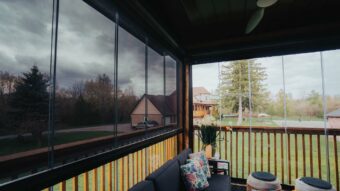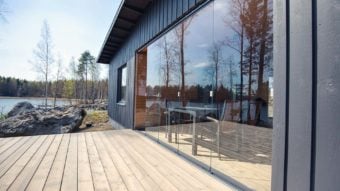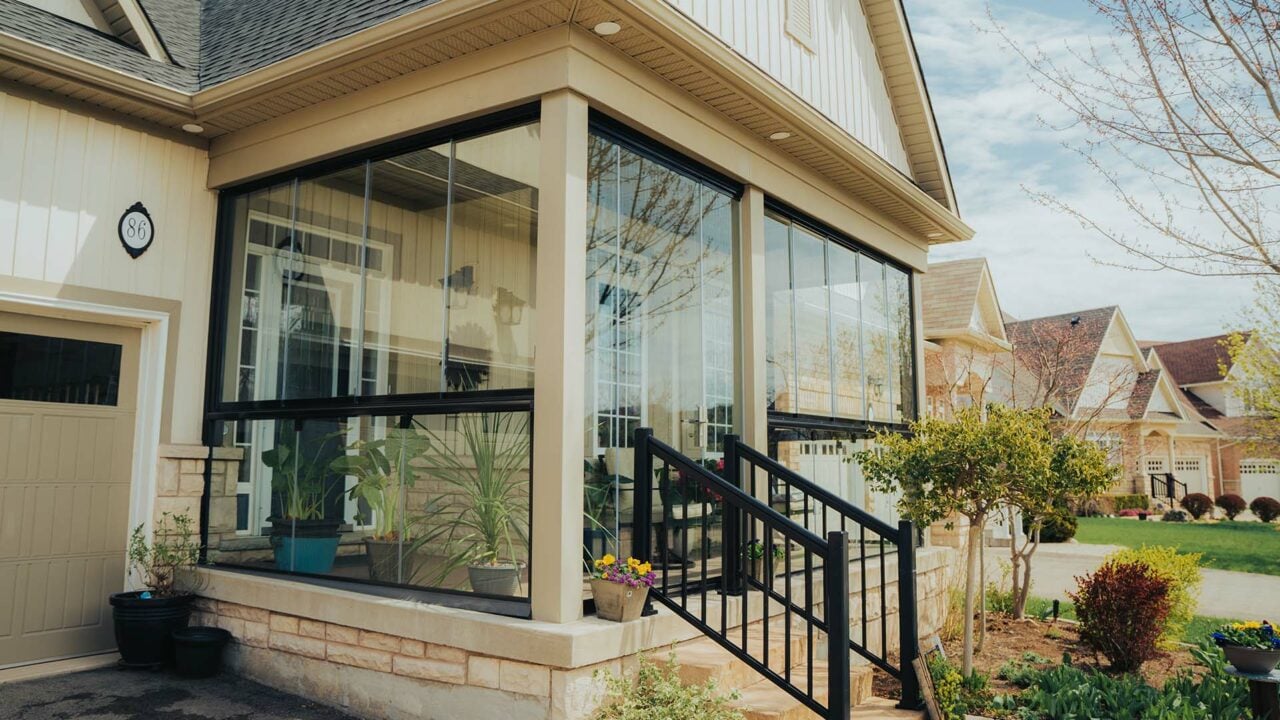
What Are Porch Enclosures? Benefits, Costs & Process
A porch enclosure is a fantastic way to maximize the usability of an outdoor space, transforming it into a comfortable area that can be enjoyed across multiple seasons. Whether to keep out bugs, shield from the elements, or create a cozy sitting area, enclosing your porch can open new possibilities for relaxation, dining, and entertaining.
The benefits of porch enclosures are numerous; they can increase your home’s value, provide additional living space, and even improve energy efficiency.
As with any home improvement project, installing a porch enclosure involves costs and a specific process. This guide will delve into these aspects, providing you with comprehensive information to make an informed decision.
Understanding Porch Enclosures
Simply put, porch enclosures are structures that enclose a porch, providing protection from the elements and insects. They can be made from various materials, including glass, screens, or a combination of both. These structures can be customized according to the homeowner’s preferences and needs.
Types of Porch Enclosures
Choosing the right type of porch enclosure depends on your lifestyle and climate. Each type has its own set of advantages, which can help you make a well-informed decision.
- Screened-in Porches (Cost Range: $1,000 – $5,000 for a basic setup)
Screened-in porches provide a simple barrier against bugs and debris. They are perfect for warm climates where protection against insects is essential. Available in both manual and automatic versions, this option does not provide insulation. However, screened enclosures can offer shade and cooler temperatures while allowing air to circulate freely. Higher-density screen materials are also available for increased privacy. This option is often cost-effective and straightforward.
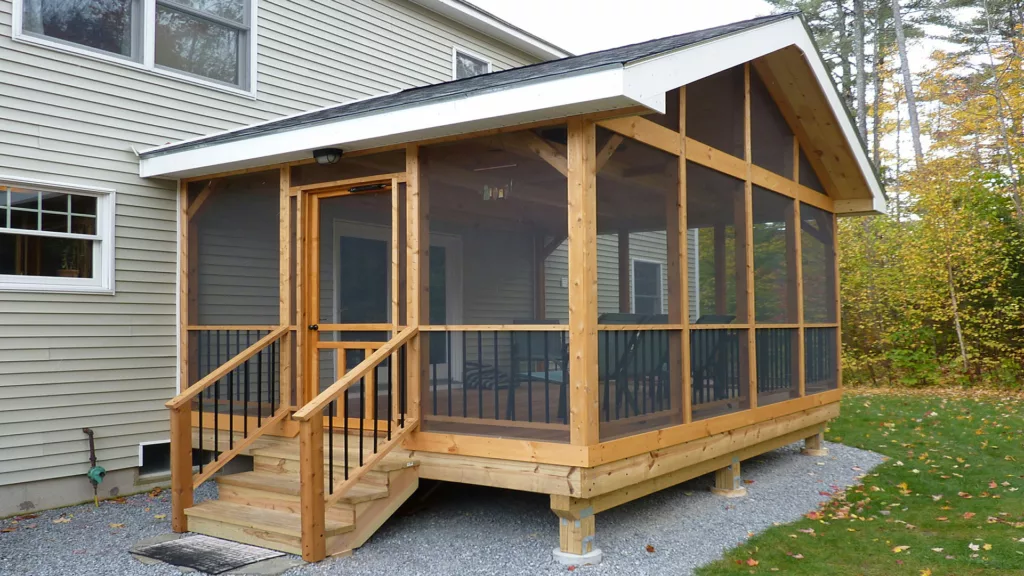
- Porches as a Three-Season Space ($10,000 – $25,000 depending on size and materials)
By adding glass walls to your existing porch, you can create a three-season room that serves as a comfortable transition between indoor and outdoor living spaces. This allows you to use the space in spring, summer, and fall—and with a space heater, it’s common to use this space year-round.
When considering three-season porch enclosures, homeowners generally have two primary options: fixed glass enclosures and retractable glass wall systems.
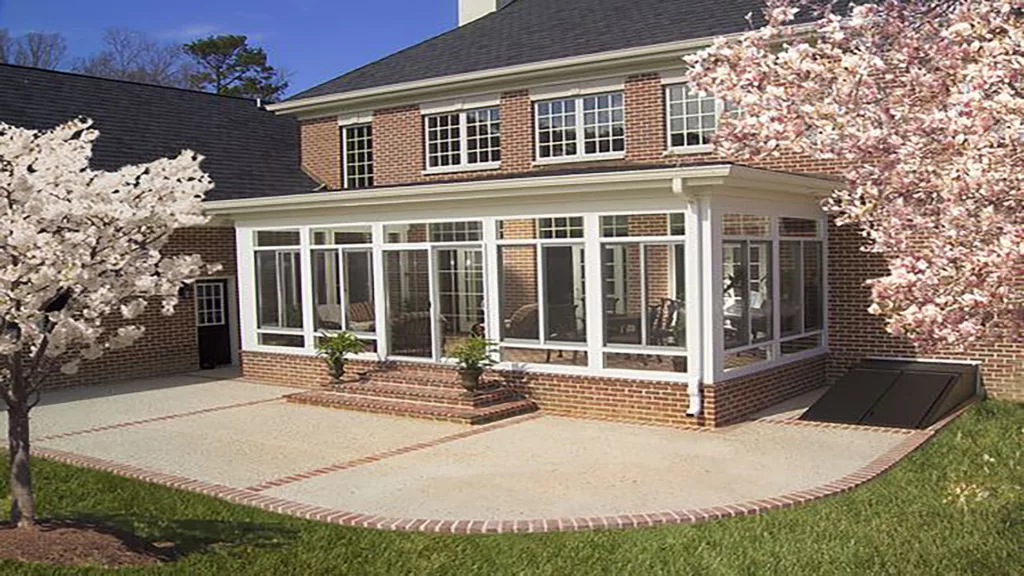
Fixed glass enclosures with aluminum or vinyl frames provide a permanent, enclosed space for porches, offering year-round weather protection. However, because the glass is fixed and non-operable, airflow is limited, which can cause the area to overheat on sunny days. This option is best for homeowners who prefer a consistently enclosed space, though it may require shading solutions in warmer months.
In contrast, retractable glass wall systems, like those from Lumon, allow homeowners to open or close the panels as desired, offering flexibility based on the weather. These systems provide full weather protection when closed but allow natural airflow and unobstructed views when open, blending the comfort of an indoor space with the benefits of an open porch. This makes them ideal for those who want both an enclosed and open-air experience.
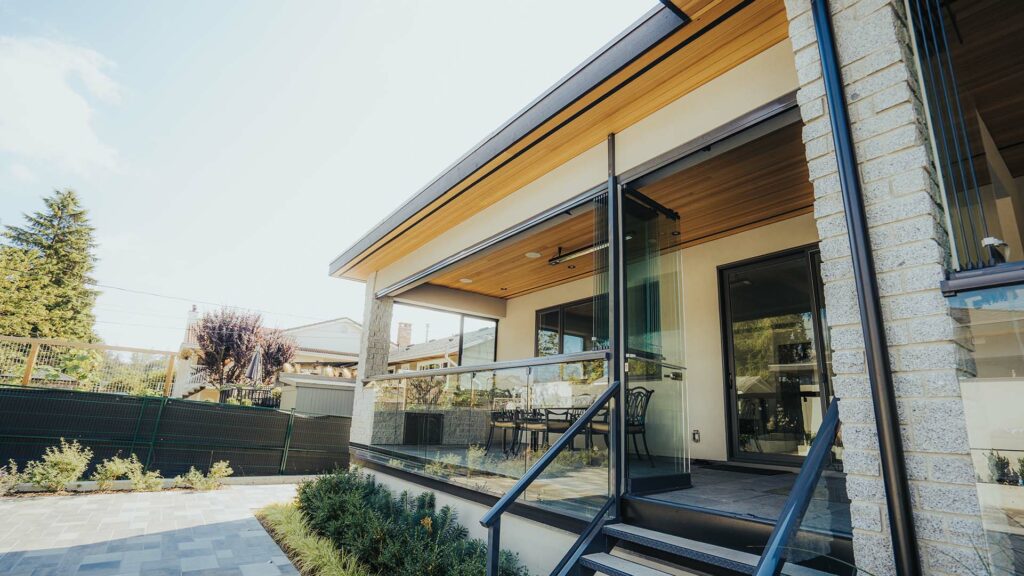
- Four-Season Rooms (Cost Range: $30,000 – $60,000 or more)
Four-season rooms are equipped to handle all weather conditions, offering excellent insulation for year-round use. These enclosures often require heating and cooling systems to maintain comfort. The costs are higher due to insulation, weather-resistant materials, and potential structural changes to the home.
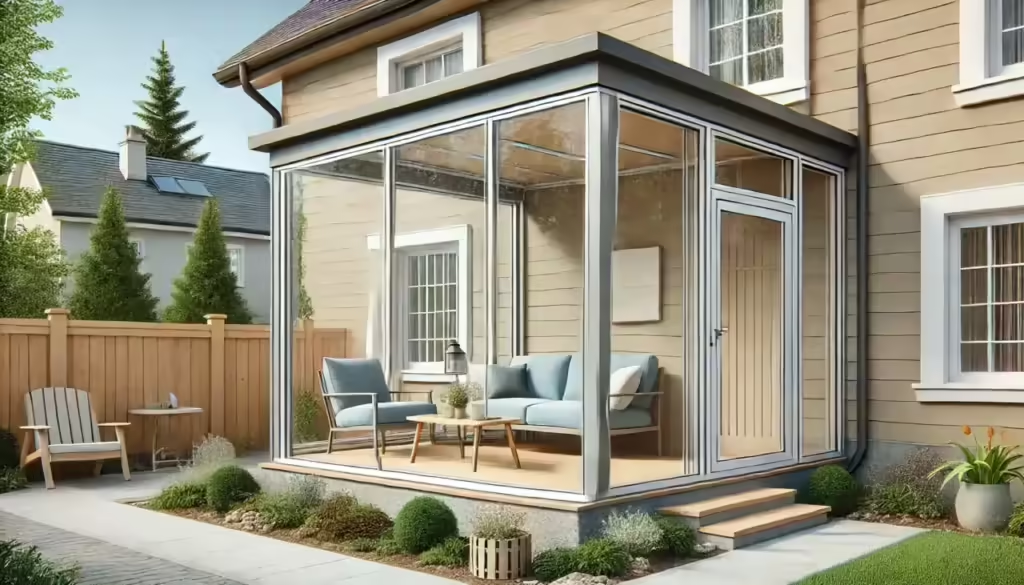
Want to know if four-season enclosures are ideal for your home? You can read more here.
Cost Factors for Porch Enclosures
The costs associated with porch enclosures can vary widely. Several factors influence the final price, offering options to match any budget. Understanding these factors helps you plan your project effectively.
- Materials: The choice of materials significantly impacts the cost. Popular options include glass, aluminum, wood, and vinyl. Each material has its own price range and maintenance needs.
- Labour: Hiring professionals increases costs but ensures quality results. Labour charges depend on the complexity of the design and local rates. DIY approaches can save money but require skill and time.
- Size and Complexity: Larger, more intricate enclosures cost more due to more material needs and higher labour demands. Customized designs may also require specialized skills, contributing to higher expenses.
- Additional Features: Adding luxury features like heating, lighting, or decorative elements can raise costs. These additions, however, enhance comfort and functionality, often proving worth the investment.
Benefits of Porch Enclosures
Whether you invest in a screened-in porch, three-season or a four-season room, porch enclosures can create additional livable space. You can use this area for relaxing, entertaining, or even as a hobby space. It extends your home into the outdoors, offering a cozy and versatile environment.
Porch enclosures also provide protection from the elements, shielding you from rain, wind, and harsh sunlight, which makes outdoor activities more enjoyable.
But it doesn’t end there—porch enclosures continue to deliver benefits even if you outgrow your current home. They can significantly boost your home’s value by adding a stylish, functional space that enhances your property’s overall appeal. Many potential home buyers see enclosed porches as a desirable feature.
The Porch Enclosure Installation Process
Installing a porch enclosure begins with planning and design. This stage involves assessing your porch, selecting materials, and considering the architectural style of your home. Proper planning ensures that the enclosure meets both your functional and aesthetic needs.
Once the design is finalized, construction begins. This involves framing, adding windows or screens, and incorporating necessary features like electricity and insulation. Depending on the complexity, the process can take anywhere from a few days to several weeks. Patience and attention to detail during construction are key to achieving a durable and attractive enclosure.
If you’re interested in a three-season room from Lumon, you can read more about our process here.
Is a Porch Enclosure Right for You?
Porch enclosures offer versatile benefits, from additional space to enhanced home value. Consider your lifestyle needs and budget. If extending your outdoor enjoyment appeals to you, a porch enclosure could be an excellent choice. Evaluate your options and take the first step toward improving your home’s functionality and appeal.
Interested in getting to know more about Lumon three-season rooms for your porch?
You might also be interested in..
-
What Made This Homeowner Say ‘Yes’ to a Major Outdoor Upgrade
Read more…When Adam Chan set out to enhance his outdoor space in Brampton, Ontario, he was looking for more than just a functional glass enclosure. He wanted something beautiful, durable, and thoughtfully designed, too.
-
How Much Does a Sunroom Cost?
Read more…Sunrooms have become a popular addition for homeowners looking to enhance their living space and connect with the outdoors without compromising comfort. However, as delightful as they may be, planning your sunroom involves understanding the factors that influence its cost.
-
A Guide to Cat-Proofing Your Patio
Read more…Cats love to bask in the sun and enjoy the breeze as much as we do. But all it takes is a moment of distraction for them to get themselves into trouble. That’s why taking steps to cat-proof your balcony is the best way to ensure they’re safe while they explore the outdoors.
